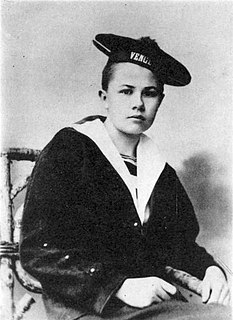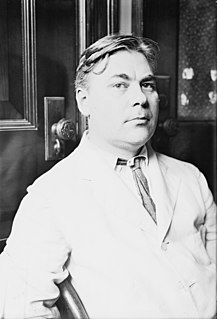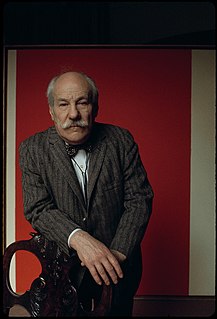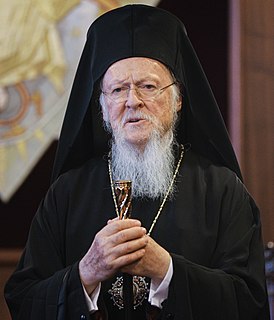A Quote by Arthur Schopenhauer
In order to increase his pleasures, man has intentionally added to the number and pressure of his needs, which in their original state were not much more difficult to satisfy than those of the brute. Hence luxury in all its forms; delicate food, the use of tobacco and opium, spirituous liquors, fine clothes, and the thousand and one things that he considers necessary to his existence.
Related Quotes
The disappointed man turns his thoughts toward a state of existence where his wiser desires may be fixed with the certainty of faith; the successful man feels that the objects which he has ardently pursued fail to satisfy the cravings of an immortal spirit; the wicked man turneth away from his wickedness, that he may save his soul alive.
The pleasure and the love of God for His creatures constitute the original state. His pleasure and love are the means by which He has brought His creatures into existence and are the cause of that bringing into existence. He who knows that he possesses neither being nor act rediscovers himself in that original state of pleasure and divine love.
Man is, at one and the same time, a solitary being and a social being. As a solitary being, he attempts to protect his own existence and that of those who are closest to him, to satisfy his personal desires, and to develop his innate abilities. As a social being, he seeks to gain the recognition and affection of his fellow human beings, to share in their pleasures, to comfort them in their sorrows, and to improve their conditions of life.
A commander-in-chief cannot take as an excuse for his mistakes in warfare an order given by his sovereign or his minister when the person giving the order is absent from the field of operations and is imperfectly aware or wholly unaware of the latest state of affairs. It follows that any commander-in-chief who undertakes to carry out a plan which he considers defective is at fault; he must put forward his reasons, insist on the plan being changed, and finally tender his resignation rather than be the instrument of his army's downfall.
Civilization, that great fraud of our times, has promised man that by complicating his existence it would multiply his pleasures. ... Civilization has promised man freedom, at the cost of giving up everything dear to him, which it arrogantly treated as lies and fantasies. ... Hour by hour needs increase and are nearly always unsatisfied, peopling the earth with discontented rebels. The superfluous has become a necessity and luxuries indispensable.
Man is more than his environment. It is from the innate quality of the Spirit in him, his inner storehouse, that he draws those ideas, his intuitions, which unify his perceptions of the external world instantaneously with a value which is qualitative and not quantitative, and which he embodies in the works of his culture - those achievements which belong not only to one particular time but to all times, and mark the path of his upward progress.
It is obvious that Paul did not regard prayer as supplemental, but as fundamental-not something to be added to his work but the very matrix out of which his work was born. He was a man of action because he was a man of prayer. It was probably his prayer even more than his preaching that produced the kind of leaders we meet in his letters.
I know no study which is so unutterably saddening as that of the evolution of humanity, as it is set forth in the annals of history. Out of the darkness of prehistoric ages man emerges with the marks of his lowly origin strong upon him. He is a brute, only more intelligent than the other brutes, a blind prey to impulses, which as often as not led him to destruction; a victim to endless illusions, which make his mental existence a terror and a burden, and fill his physical life with barren toil and battle.
His manners were less pure, but his character was equally amiable with that of his father. Twenty-two acknowledged concubines, and a library of sixty-two thousand volumes, attested the variety of his inclinations, and from the productions which he left behind him, it appears that the former as well as the latter were designed for use rather than ostentation.
Man never ceases to seek knowledge about the objects of his experiences, to understand their meaning for his existence and to react to them according to his understanding. Finally, out of the sum total of the meanings that he has deduced from his contacts with numerous single objects of his environment there grows a unified view of the world into which he finds himself "thrown" (to use an existentialist term again) and this view is of the third order.
Man has sought to take from the natural world not only that which is necessary for his stability and survival, but often seeks to satisfy his perceived and ultimately false psychological needs, such as his need for self-display, luxuries and the like. Twenty percent of humanity consumes eighty percent of the world's wealth and is accountable for an equal percentage of the world's ecological catastrophes.










































